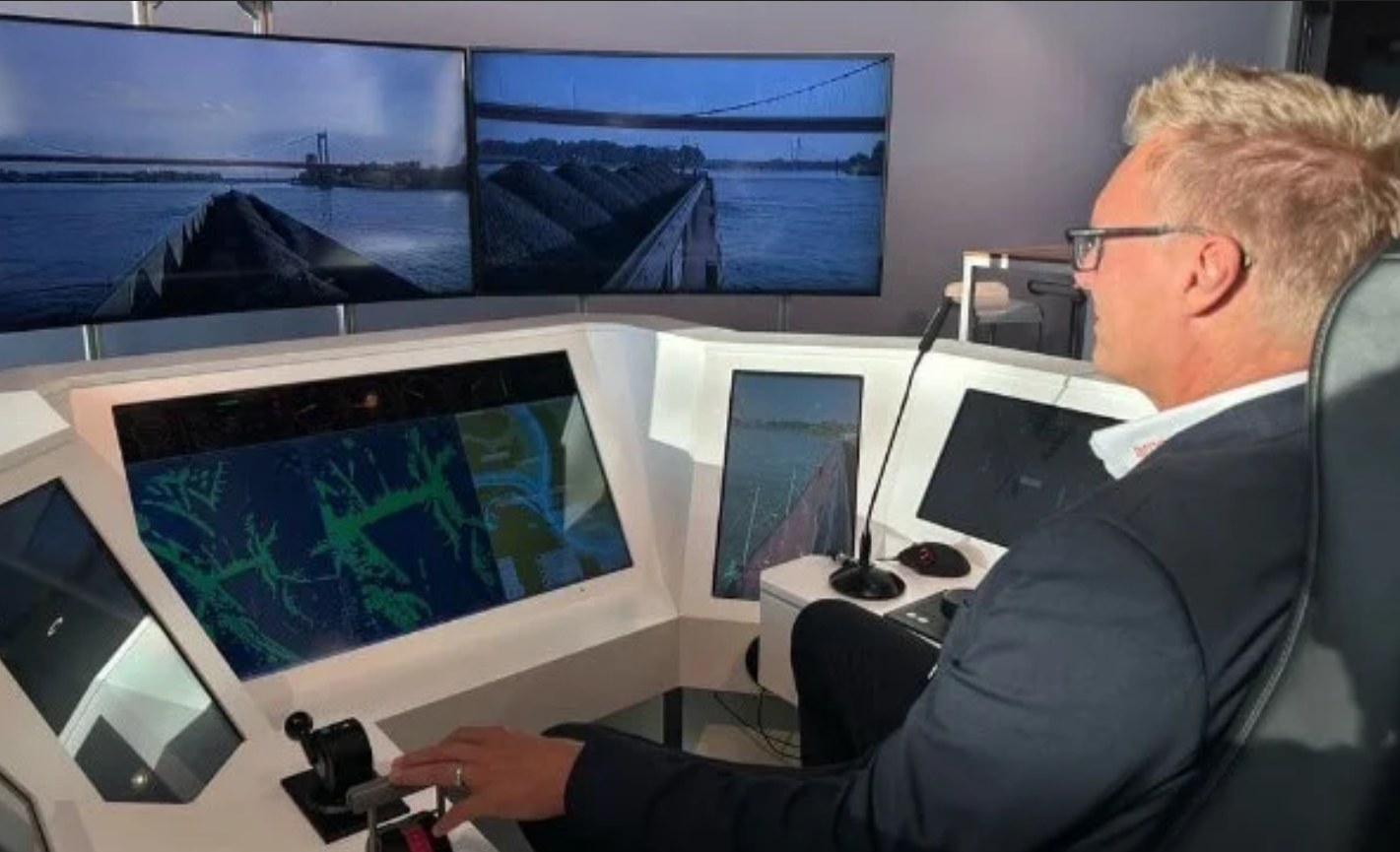
At the German National Maritime Conference, attendees were treated to a demonstration of a fully remote-controlled inland waterway cargo ship. The showcase marked the successful conclusion of the three-year FereBin research project, a collaborative effort led by Rhenus Shipping Management, Argonics, DST, the University of Duisburg-Essen, and RWTH Aachen University.
Lars Reckers, Technical Manager at Rhenus Shipping Management, emphasized the significant advantages of remote-controlled operations. With the growing shortage of skilled vessel operators, Reckers highlighted the technology’s potential to extend operational hours and the possibility of steering and operating vessels entirely from remote-control centers. He even envisioned a future where ship operators could work from the comfort of their homes, making the profession more family-friendly.


The focal point of the project was the Ernst Kramer, a 345-foot inland waterway cargo ship built in 1974, retrofitted with remote-controlled capabilities. Equipped with a sensor and camera system, all data was transmitted via a Starlink connection to ensure seamless communication. Remote operators gained control over critical systems, including adjusting the engine’s rpm, managing the transmission, and controlling the rudder’s position, all while monitoring the vessel’s status through radar signals and cameras.
A successful trial voyage of the Ernst Kramer took place on July 6 and 7, covering nearly 30 miles from Rotterdam to Willemstad. The conference at the Bremen Trade Fair Center featured a live link to the vessel’s journey from the Port of Duisburg to the Ruhr estuary, allowing attendees to witness the remote-controlled operation in real-time. Bernard Buche and Herbert Berger, Managing Directors at Rhenus Schiffsmanagement, took turns controlling the vessel during the event.
The FernBin project, scheduled to conclude at the end of this year, is currently seeking an extension for an additional three months. The focus is on developing an adaptive navigation system that dynamically reacts to surrounding traffic, processing real-time information. The goal is to create a module aiding remote-controlled operations by predicting and visualizing the required space for ship encounters, empowering skippers to navigate safely based on the behavior of surrounding vessels.
